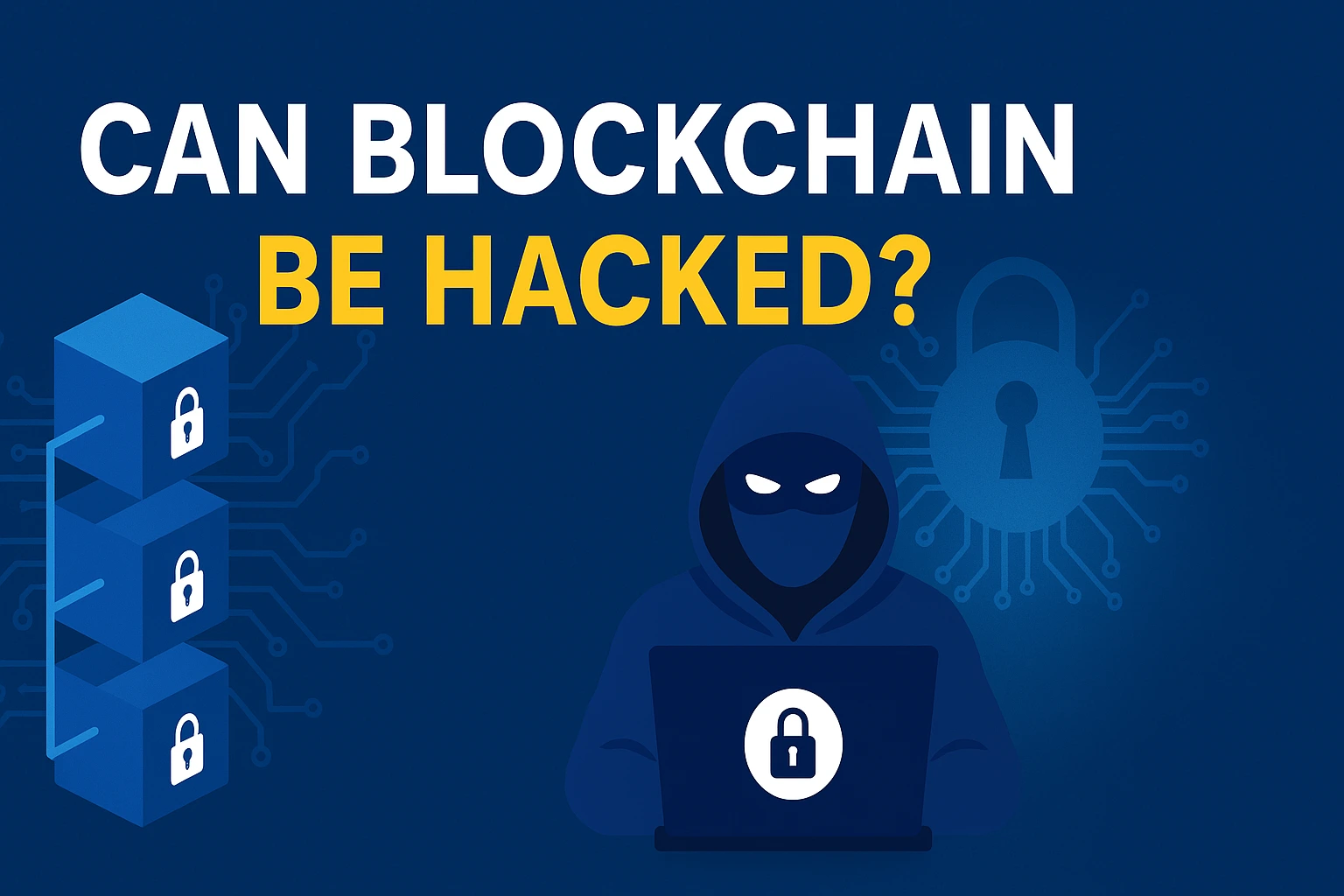Blockchain technology is widely regarded as one of the most secure forms of digital infrastructure. Its decentralized nature, cryptographic protocols, and consensus mechanisms make it extremely difficult to hack. However, no system is entirely immune. This article explores whether blockchain can be hacked, how attacks have happened in the past, and how secure the technology truly is.
Understanding Blockchain Security
What Makes Blockchain Secure?
- Decentralization: No single point of failure; data is stored across a network of nodes.
- Cryptography: Each block contains a cryptographic hash of the previous one, ensuring data integrity.
- Consensus Mechanisms: Proof-of-Work (PoW), Proof-of-Stake (PoS), and others prevent unauthorized changes.
- Transparency: Public blockchains allow continuous verification of transactions by participants.
Can Blockchain Be Hacked?
While blockchain networks themselves are incredibly secure, there are scenarios where vulnerabilities can be exploited. Most successful hacks target blockchain-based systems or applications—like exchanges or smart contracts—not the core protocol itself.
How Do Blockchain Hacks Happen?
1. 51% Attacks
If a single entity or group gains more than 50% of a blockchain’s computational power (hashrate), they can manipulate the network. This could include double spending or blocking transactions.
Example: Ethereum Classic suffered a 51% attack in 2019, where attackers reorganized the blockchain and reversed transactions.
2. Smart Contract Vulnerabilities
Smart contracts are publicly visible on the blockchain and can be exploited if they contain bugs or security flaws.
Example: The infamous DAO hack on Ethereum in 2016 resulted in the loss of $60 million worth of ETH due to a smart contract vulnerability.
3. Exchange and Wallet Hacks
Cryptocurrency exchanges and wallets are centralized services built on top of blockchain networks. These are frequent targets for hackers because they often store large sums of crypto in custodial wallets.
Example: Mt. Gox, Coincheck, and Binance have all been victims of high-profile exchange hacks over the past decade.
4. Social Engineering and Phishing
Attackers may trick users into giving up private keys or login credentials via phishing emails or fake apps. These are not blockchain vulnerabilities but user-side security issues.
Is Blockchain Unhackable?
No technology is 100% unhackable. However, due to its cryptographic and decentralized design, blockchain is among the most secure technologies today. Attacking a blockchain like Bitcoin or Ethereum would require:
- Controlling over 51% of the network’s computational power.
- Rewriting multiple blocks while outpacing the rest of the network.
- Huge energy and hardware resources—often not financially feasible.
Even if a 51% attack succeeds, it does not allow stealing crypto from others’ wallets—only manipulating recent transactions or double-spending the attacker’s own coins.
Forking as a Recovery Method
When blockchain networks suffer catastrophic failures or security breaches, developers may perform a “fork”—a split from the compromised chain to restore trust. This was the case with Ethereum after the DAO hack, resulting in the creation of Ethereum (ETH) and Ethereum Classic (ETC).
Future Risks: Quantum Computing
Quantum computing may pose a future risk to blockchain cryptography. However, researchers are actively developing post-quantum cryptographic algorithms to prepare for this potential threat.
FAQs About Blockchain Hacking
Can Bitcoin be hacked?
The Bitcoin blockchain has never been successfully hacked. Most security breaches involving Bitcoin have targeted exchanges or wallets—not the blockchain itself.
What is a 51% attack?
A 51% attack occurs when an entity gains majority control over a blockchain’s mining power, allowing them to reverse transactions and double-spend coins.
Is Ethereum more vulnerable due to smart contracts?
Ethereum itself is secure, but vulnerable smart contracts can be exploited if not properly audited or coded.
How can users protect themselves?
- Use reputable wallets and exchanges.
- Enable 2FA and never share private keys.
- Be cautious with smart contract interactions.
- Stay updated on known vulnerabilities and patches.
Are private blockchains more secure?
Private blockchains can be more secure in controlled environments, but they sacrifice decentralization and may still be vulnerable to insider threats.
Conclusion
While blockchain technology offers strong protection against tampering and cyberattacks, no system is entirely immune. Most blockchain-related hacks target third-party services, smart contracts, or rely on human error. However, when implemented correctly and maintained responsibly, blockchain remains one of the most secure technologies for digital transactions and data management.

Selina Davies is a technology writer and blockchain enthusiast with a passion for simplifying complex topics. With years of experience in fintech and decentralized systems, she focuses on educating readers about the future of digital innovation through clear, accurate, and engaging content.
